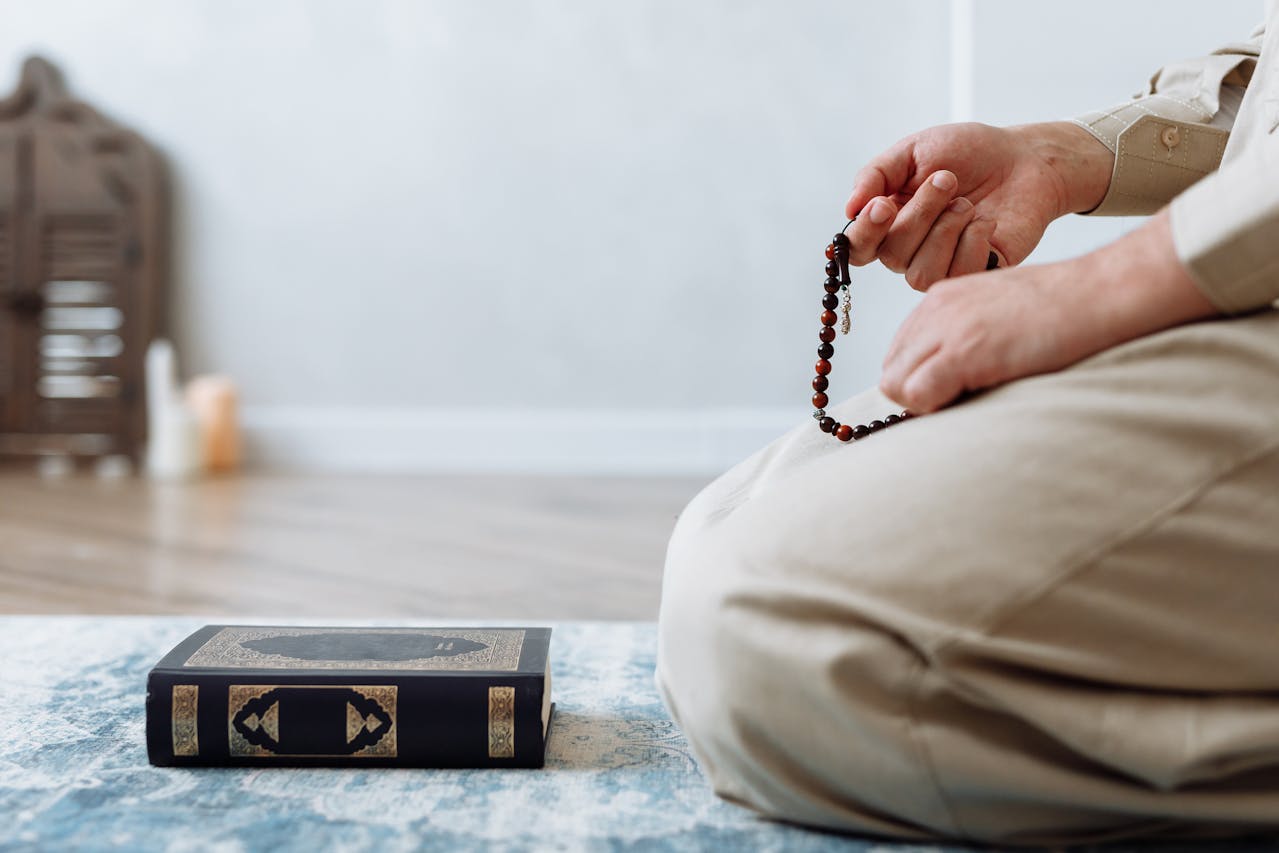Happiness is something every human seeks, but in the Islamic perspective, true happiness is more than temporary joy—it is a deep contentment and peace of heart that comes from faith, gratitude, and connection with Allah (SWT). Life can be challenging, and worldly success or possessions often provide only fleeting satisfaction. Islam provides a powerful solution through Duas (supplications), which are not only a spiritual connection to Allah but also a source of emotional comfort and mental well-being. Short Duas, in particular, are easy to memorize, practical for daily life, and effective in fostering happiness. This comprehensive guide explores the most beneficial Duas for happiness, their meanings, and how Muslims can recite them for inner peace and joy.
Why Duas Bring Happiness
Duas are a unique form of worship in Islam. While prayers (Salah) are formal acts of worship performed at specific times, Duas are personal, flexible, and heartfelt invocations to Allah. They allow Muslims to express their desires, fears, gratitude, and hopes. According to the Qur’an:
“And your Lord says, ‘Call upon Me; I will respond to you.’” (Surah Ghafir 40:60)
This verse highlights the importance of turning to Allah in all circumstances. Duas help us focus on the divine, cultivate hope, and relieve anxiety, which are key ingredients of true happiness. Short Duas, in particular, are effective because they can be recited anytime—while traveling, before sleeping, or during moments of stress—allowing a continuous connection to Allah and fostering emotional stability.
Short Duas for Spiritual Contentment
One of the most significant aspects of happiness in Islam is spiritual contentment, or Qana’ah—being satisfied with what Allah has given. The Qur’an guides us to ask for steadfastness and mercy in the following Dua:
رَبَّنَا لَا تُزِغْ قُلُوبَنَا بَعْدَ إِذْ هَدَيْتَنَا وَهَبْ لَنَا مِن لَّدُنكَ رَحْمَةً إِنَّكَ أَنتَ الْوَهَّابُ
(Rabbana la tuzigh quloobana ba’da ith hadaytana wa hab lana min ladunka rahmah, innaka Antal-Wahhab)
Meaning: “Our Lord, let not our hearts deviate after You have guided us and grant us mercy from Yourself. Indeed, You are the Bestower.”
This Dua reminds us that happiness comes from staying on the right path and seeking Allah’s mercy. Reciting it daily strengthens faith and cultivates a heart that remains calm, humble, and satisfied despite life’s challenges.
Another Dua to soften the heart and cultivate inner peace is:
اللَّهُمَّ أَلِّنِي فِي قَلْبِي وَفِي نَفْسِي وَفِي دِرْبِي
(Allahumma allini fi qalbi wa fi nafsi wa fi darbi)
Meaning: “O Allah, soften my heart, my soul, and my path.”
By asking Allah to soften our hearts, we become more compassionate, patient, and forgiving—traits that directly contribute to a joyful and harmonious life.
Short Duas to Cultivate Gratitude
Gratitude is central to Islamic teachings. Being thankful to Allah not only increases our blessings but also brings a deep sense of contentment. The Prophet Muhammad (SAW) said, “Whoever is not grateful for small blessings will not be grateful for large ones.”
A powerful short Dua for gratitude is:
اللَّهُمَّ اجعلني من الشاكرين
(Allahumma aj’alni min al-shakireen)
Meaning: “O Allah, make me among the grateful.”
This simple Dua can be recited multiple times a day, especially after prayers or meals. When we focus on blessings instead of shortcomings, happiness grows naturally. Other Duas that cultivate gratitude include:
سُبْحَانَ اللَّهِ وَالْحَمْدُ لِلَّهِ وَلَا إِلَهَ إِلَّا اللَّهُ وَاللَّهُ أَكْبَرُ
(SubhanAllah walhamdulillah wala ilaha illallah wallahu akbar)
Reciting this Dhikr (remembrance of Allah) frequently fills the heart with peace and joy, reinforcing gratitude in everyday life.
Short Duas for Protection from Anxiety and Sadness
Life often presents challenges that can lead to worry, sadness, or mental distress. Islam teaches us to seek protection through Duas. The Prophet Muhammad (SAW) recommended:
رَبِّ إِنِّي أَعُوذُ بِكَ مِنَ الْهَمِّ وَالْحَزَنِ
(Rabbi inni a’udhu bika minal-hammi wal-hazan)
Meaning: “My Lord, I seek refuge in You from anxiety and sorrow.”
Regularly reciting this Dua, especially in times of stress, brings comfort and reassurance that Allah is in control and will provide solutions. Another relevant Dua is:
اللَّهُمَّ اجعل لي من كل هم فرجاً ومن كل ضيق مخرجاً
(Allahumma aj‘al li min kulli hammin farajan wa min kulli dayqin makhrajan)
Meaning: “O Allah, grant me relief from every worry and a way out from every hardship.”
These Duas encourage Muslims to turn to Allah instead of succumbing to negativity, helping them maintain optimism and resilience.
Short Duas for Daily Happiness and Well-being
In addition to seeking relief from distress, Islam emphasizes asking for general well-being and joy in life. These Duas can be recited as part of morning and evening supplications to invite happiness every day:
- اللَّهُمَّ أَفْرَحْنِي بِقَلْبِي وَنَفْسِي
(Allahumma afrahni bi qalbi wa nafsi) – “O Allah, fill my heart and soul with joy.” - رَبِّ اجعلني قرة عين لأهلي واصرف عني السوء
(Rabbi aj‘alni qurrata ‘ayna li ahli wa asrif ‘anni al-soo’) – “My Lord, make me a source of joy for my family and protect me from harm.” - اللَّهُمَّ اجعلني من الذين إذا أصابهم البلاء صبروا وإذا أكرمتهم شكروا
(Allahumma aj’alni min alladhina idha asabahum al-bala’ sabaru wa idha akramtahum shakaru) – “O Allah, make me among those who are patient in adversity and grateful in prosperity.”
These Duas not only bring happiness to the individual but also promote a positive environment for family and community.
How to Incorporate Short Duas into Daily Life
The key to benefiting from Duas is consistency and sincerity. Here are some practical tips:
- Morning and Evening Routine: Recite short Duas every morning and evening as part of a spiritual routine.
- During Salah: Incorporate them after the obligatory prayers to reinforce connection with Allah.
- Moments of Stress: Whenever feeling anxious, sad, or overwhelmed, recite relevant Duas for relief.
- Gratitude Practice: End the day by thanking Allah for blessings, reciting Duas for contentment.
- Family Involvement: Teach children these short Duas to cultivate happiness and mindfulness from an early age.
Consistency ensures that these supplications become a natural part of life, creating a steady foundation of happiness and spiritual peace.
Conclusion
True happiness in Islam is more than fleeting joy—it is a heart at peace, contentment with Allah’s decree, and gratitude for His countless blessings. Short Duas provide a practical, spiritual, and emotional pathway to achieve this happiness. By regularly reciting Duas such as رَبَّنَا لَا تُزِغْ قُلُوبَنَا, اللَّهُمَّ أَلِّنِي فِي قَلْبِي, اللَّهُمَّ اجعلني من الشاكرين, and رَبِّ إِنِّي أَعُوذُ بِكَ مِنَ الْهَمِّ وَالْحَزَنِ, Muslims can strengthen their connection with Allah, find comfort during hardships, and cultivate a joyful, contented life. Incorporating these short supplications into daily routines ensures that happiness becomes a lasting state of the heart, rooted in faith, gratitude, and remembrance of Allah.
Happiness is not a distant dream—it is a spiritual practice. Every Muslim has the tools through Duas to invite peace, joy, and contentment into their lives. Start today, recite these short Duas with sincerity, and watch as your heart transforms with Allah’s mercy and blessings.




